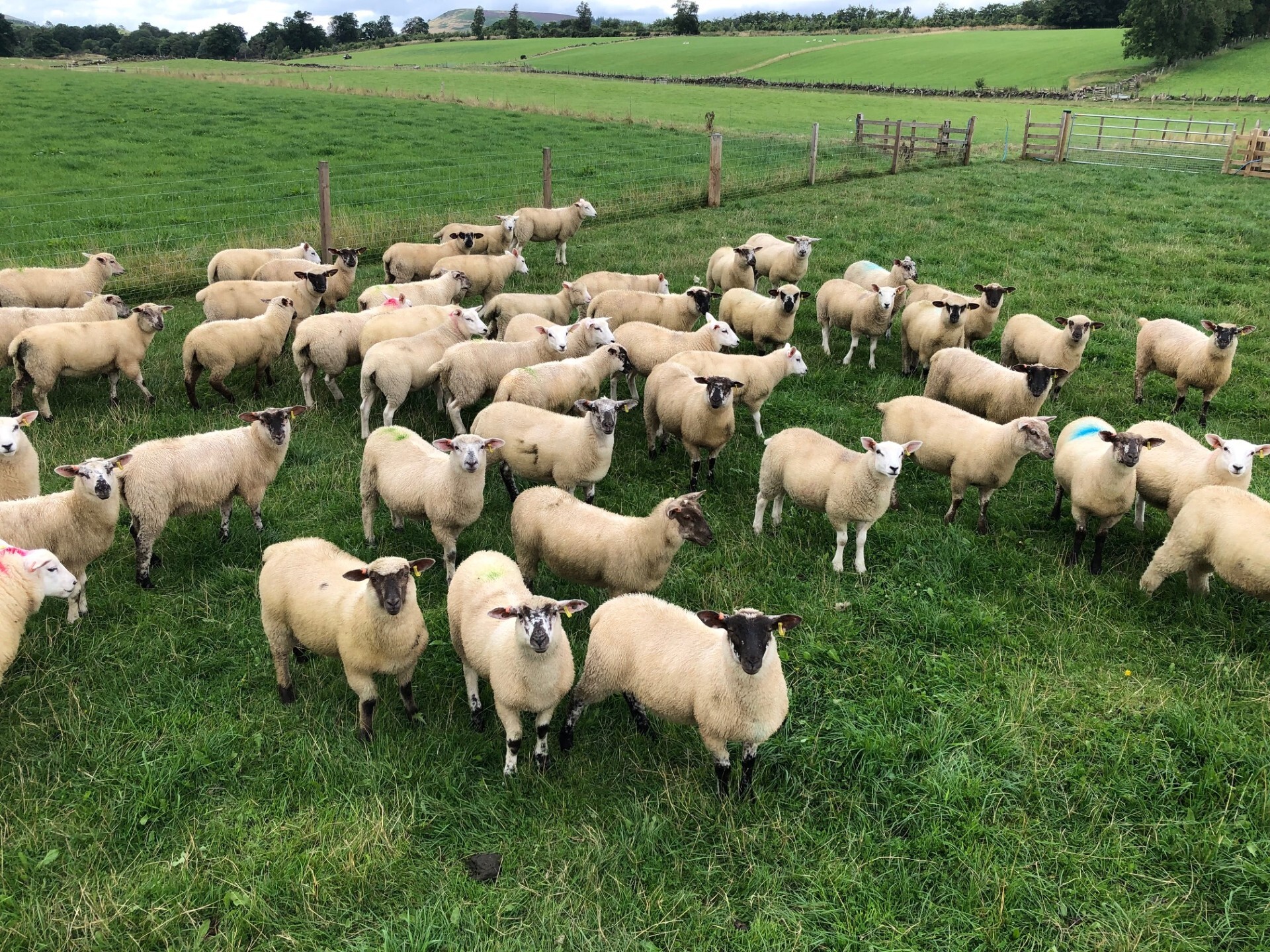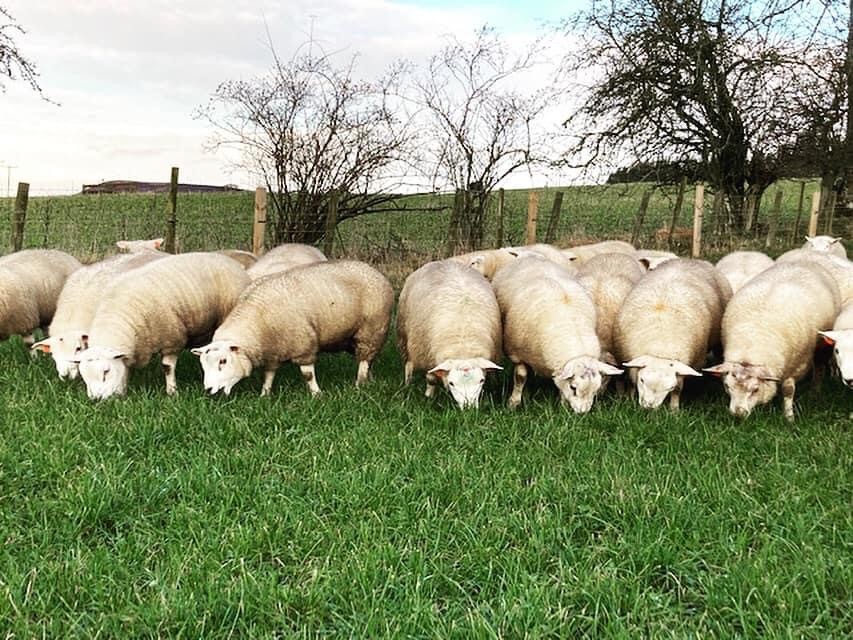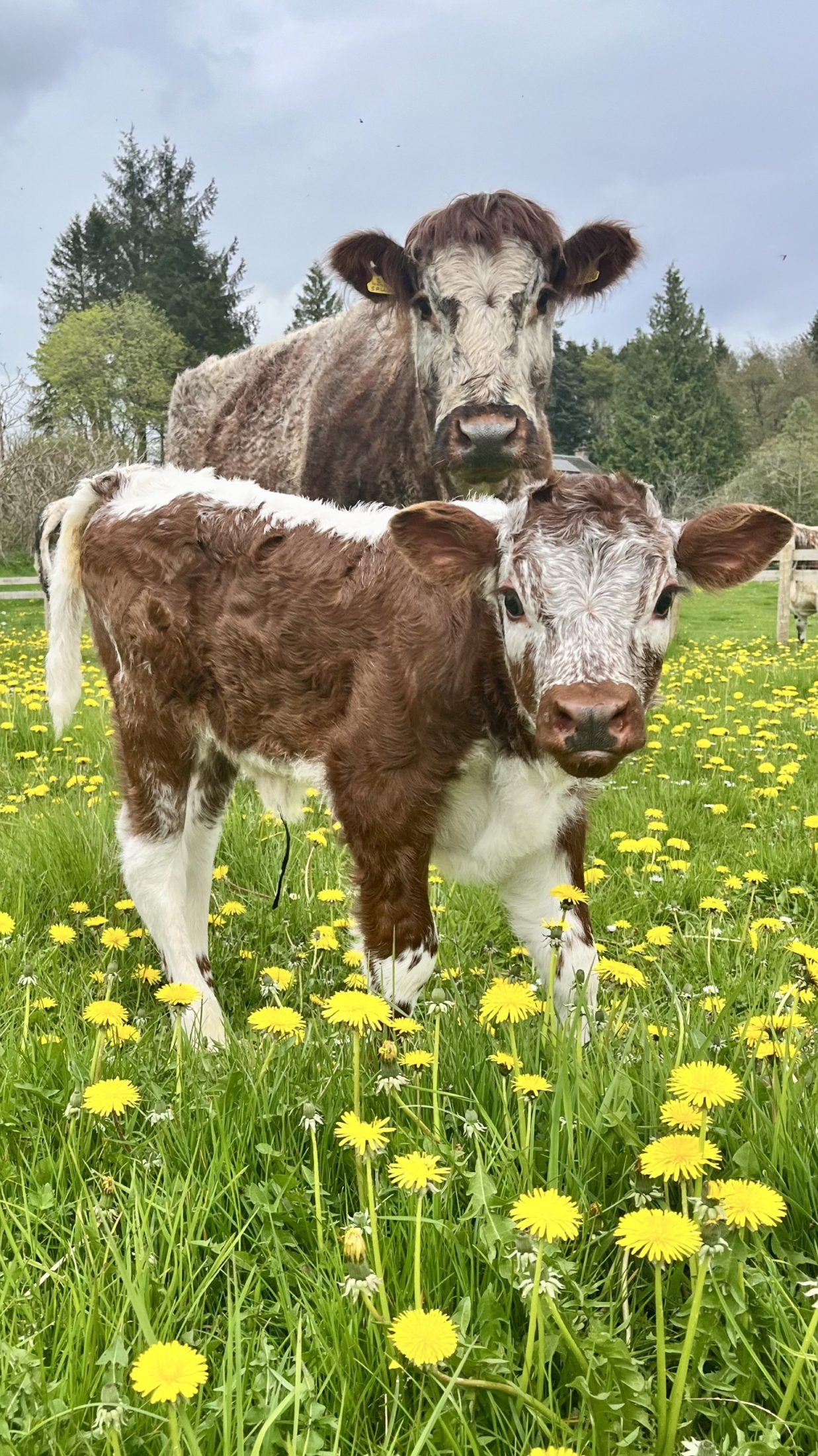Farm Newsletter July 2023
The good weather throughout much of the first part of June has meant that most folk are well up to date with silage and field work. For us that meant it has been a somewhat quiet month as livestock are broadly speaking out at grass and doing well. We fertility sampled more bulls than ever this year, but everyone has been very organized and the majority of this was done back in April and May. We’ve been using the quieter times to get caught up on some overdue health plans as well as dealing with the slightly odd cases that we tend to get during summer – sunburn, bloats and suspect adder bites have all been seen this month and an investigation into adult ewe mortality revealed OPA (or Jaagsiekte) to be the cause.
With the rising temperatures and a bit of moisture about, flies for a short while became a real menace with a few early blowfly strikes in sheep and a few cases of summer mastitis in cattle. The last few days however have been a bit cooler with a stiffer breeze going about helping to keep things at bay. For our advice on flies please refer back to last months newsletter or give us a shout.
One other thing we have seen a bit of in the last few weeks is pneumonia in spring born calves out at grass, whilst not common this does appear to be an emerging syndrome. Diagnosis by swabbing is now quicker, easier and more accurate than ever, and it’s always good to get to the bottom of these things, so please do let us know if you encounter any problems of this sort this summer.
As this email version of the newsletter is still pretty new, we want to make sure it’s getting to all the right people, so please sign up using the link below, and let all your farm team know too.
Subscribe here – http://eepurl.com/irN7NY
Plan ahead to prevent Toxoplasmosis in your flock
Yet again this year we diagnosed problems with Toxoplasma causing abortions in a few of our sheep flocks. These losses are exceptionally frustrating as could have easily been prevented through vaccination. If you’ve got sheep, there’s more than a fair chance they are at risk, as is now the world’s most common parasite and it’s been estimated that over 90% of sheep flocks in Great Britain are exposed to it.
Certainly, if you had more than 2% of your flock aborting during the lambing season you should ask us to investigate. There is also support available to pay 100% of the lab fees of these investigations. Now is the time to work out what caused this year’s problems with a view to avoiding similar next year. However, your primary focus should be on preventing infection in pregnant ewes in the first place, and the best way to do that is to vaccinate replacement ewes well before they go to the tup.
The complex Toxoplama gondii parasite lifecycle presents significant disease management challenges to sheep producers. The sheer volume of infectious oocysts produced by the parasite and their resistance to destruction leads to widespread environmental contamination: this is one of the main reasons why toxoplasmosis is so prevalent in GB flocks.
Sheep are very vulnerable to picking up the Toxoplasma parasite from the environment, so normal biosecurity measures are not enough to control the disease. Fortunately, toxoplasmosis can be controlled effectively by a simple vaccination regime. What’s more, an investment in vaccination will payback handsomely by a reduction in future flock barren and abortion rates. The clear industry advice now is that every ewe should have been vaccinated before it breeds. After 2 years, a single repeat dose can be given at least 3 weeks prior to mating. However, most ewes are only vaccinated once during a breeding life time as natural boosting occurs, so one dose may protect all lamb crops in the ewe’s lifetime.
All breeding females should be vaccinated any time between four months and three weeks before tupping. Immediately post lambing and up until the typical autumn breeding season there’s a very wide window of opportunity to vaccinate most female breeding sheep against toxoplasmosis, so it makes sense to schedule this crucial intervention as soon as possible, alongside other routine summer procedures. There is currently also a 5% discount available on vaccine ordered and delivered by the end of July.
If you experienced a few abortions or weakly lambs during the lambing season, please contact us for advice and we can investigate.
Lungworm in Cattle
Could you be a NADIS sentinel farm?
NADIS, who provide accurate parasite forecasting to farmers are looking for sheep flocks to be a “sentinel farm” – reporting cases of nematodirus, flystrike and fluke to their system. It would all be anonymous and would allow them to refine their system and therfore help you and other farms.
In exchange you would be signed up to their forecasting system for free. If you would like to be involved please click on the link below.
See you at Kirrie Show!







